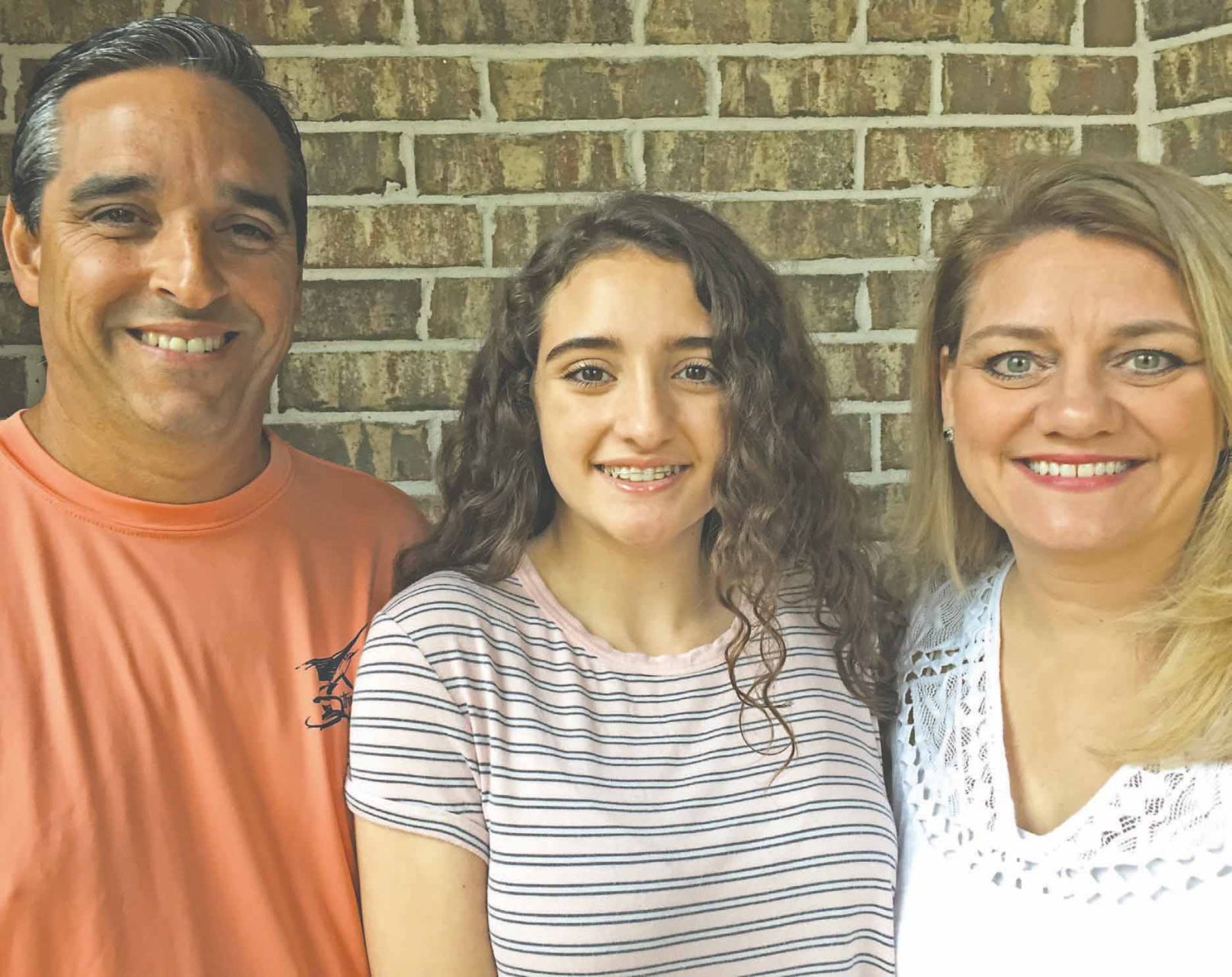
Former drug cop boss pleads guilty to theft
June 2, 2016
Former drug cop boss pleads guilty to theft
June 7, 2016Among the memories Hannah Perez has cherished most are the times spent at her family’s camp on a small bayou near Lake Decade, in western Terrebonne Parish.
An experience the 16-year-told Katy, Texas, high school junior could have done without, however, is that of being bitten by an alligator while taking what had been a relaxing mid-afternoon swim. Alligator attacks on humans are almost unheard of in these parts, where the creatures flourish. But Hannah’s experience, her parents said, is proof that attacks can happen, and they hope telling of the tale will help keep others safe.
The family once lived in Terrebonne Parish full-time; after moving to Texas they still visit their camp on Little Deuce Bayou as much as possible.
“It was such a shocking thing,” Hannah said. “I heard a splash and when I turned, I saw the alligator move and the
wake of its tail in the water.
The weekend before Memorial Day began simply enough, with family repairs on a boat shed and completion of some school projects for Hannah. She still made time for fun on that sunny May 15, kayaking in a nearby marsh.
“I didn’t see any alligators, just a few fish move,” she said. “I did almost get stuck in the grass. I love tubing, swimming. I am a very good swimmer and used to be on the swim team.”
After docking the kayak, Hannah returned to the family camp and did some more school work, and later in the day, decided to take a swim.
She dove off the family’s dock and took a brief swim, then headed for her father’s boat, which has a ladder.
“I heard something, and saw something out of the corner of my eye. I saw an alligator’s jaw, and that freaked me out. I knew what I needed to do — get out of the water now. I tried to get out fast. I felt the pressure on my head and, as I got up, the teeth slid off. When it bit me, I just felt some pressure because I had so much adrenaline going through me.”
After scrambling up the boat ladder, Hannah screamed as blood flowed from an open wound on her head.
Rhonda Perez, Hannah’s mom, rushed to the sound.
“Any mother knows their child’s scream,” Rhonda said. “That is a scream I never will forget. I knew she was in the water. What happened? Did she get caught on a boat propeller? There she was covered in blood. Never in a million years did I think it would be this.”
Camp neighbors rushed to help, among them Dr. Mike Watkins. He determined that the injury could be dealt with at his office and the family rushed there with him. After disinfecting the wound and otherwise treating it, Dr. Watkins stitched Hannah up. She had the stitches removed Friday.
Jose Perez, Hannah’s father, said that he critiqued his family’s activities when everyone had a chance to catch their breath and when it was certain his daughter was out of danger. Even though he and his wife were just around the corner of the dock, they regret that nobody else was observing Hannah swim or swimming with her.
“The buddy system,” said Jose, a marketing executive with Anheuser Busch. “With swimming and other water involved activities, even someone to just be at watch, if you will. There is a heightened sense of awareness for us now.”
The Little Deuce Bayou camps host an annual fishing rodeo called La Maison de Chien, which was held Memorial Day weekend, and Jose shared Hannah’s story with those present.
“I made it a point to tell them to raise the level of awareness,” he said. “I am not going to discourage my kids from swimming, this is why we have (the camp). But we will encourage awareness.”
Hannah has easily returned to her routine, and still harbors dreams of becoming a marine biologist, something a mere errant alligator encounter won’t sway her from. And she plans to keep swimming.
Asked what she wanted to share with other people who recreate on local waters, Hannah said awareness is the greatest thing.
“Watch out for the water and the things around you, be aware because I wasn’t,” she said, adding that if you perceive a threat “get out of the water as fast as you can. You can’t take time to stop and think.”
Don’t feed the gators & other safety tips
Here are some alligator safety tips compiled from public service messages produced by the states of Louisiana, Texas and Georgia
• KEEP YOUR DISTANCE: They may look slow and awkward, but alligators are extremely powerful and can move quickly in short bursts. Be careful at the edges of waterways, where they like to lurk. The safest distance is around 60 feet.
• DO NOT MOVE ALLIGATORS OFF THE ROAD: Leave it alone and let it continue on its way. Alligators move the most in spring and summer when they are breeding.
• NEVER DISTURB NESTS: Mother gators are highly protective of their docile-appearing young. By hissing, lunging or swimming toward you, a mother gator is encouraging you to go away.
• FIGHT BACK: If you are in an impossible situation and cannot escape, fight back by punching the alligator in the head or jabbing a finger in its eye. Hopefully, it will decide you are not worth the trouble.
• DO NOT FEED: If you feed alligators they will have trouble distinguishing people from actual food. That can endanger not only you but your neighbors.
Jose Perez, his daughter Hannah and wife Rhonda. Hannah, 16, was bitten by an alligator in Little Deuce Bayou in western Terrebonne Parish May 14.
The wound suffered by Hannah Perez after being attacked by an alligator May 14.











